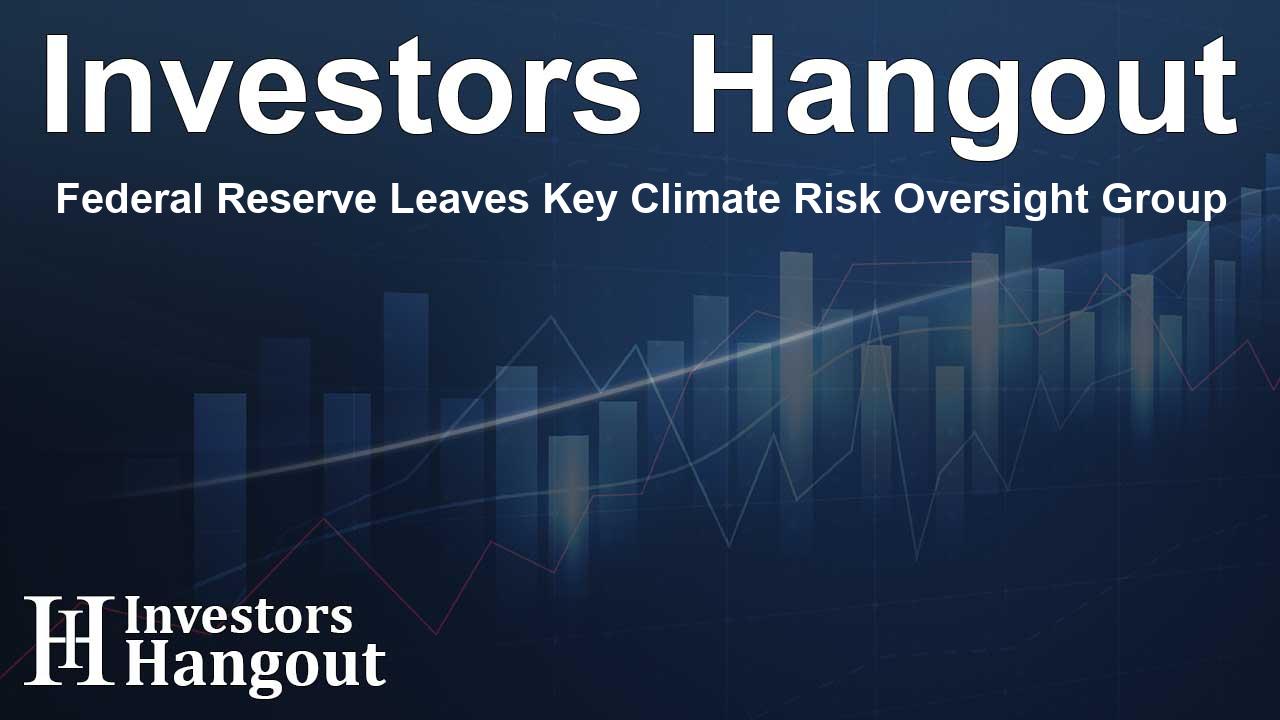Federal Reserve Leaves Key Climate Risk Oversight Group

Federal Reserve's Departure Explained
The Federal Reserve has recently made headlines by announcing its exit from a prominent international body focused on managing climate risk within the financial sector. This decision marks a significant moment in the realm of financial oversight and climate change policies.
Understanding the Network of Central Banks
The group that the Federal Reserve is leaving is known as the Network of Central Banks and Supervisors for Greening the Financial System (NGFS). Established to explore effective ways to tackle climate-related financial risks, the NGFS has been pivotal in promoting sustainability in finance since its inception.
The Role of the NGFS
The NGFS connects central banks and financial regulators from around the globe, allowing for collaboration and the sharing of best practices in integrating climate considerations into financial decision-making. It emphasizes the need for a coordinated approach in facing the financial sector's vulnerabilities related to climate change.
Reasons for the Federal Reserve's Exit
The Federal Reserve's decision to exit the NGFS stems from concerns that the group's expanded focus has moved beyond its intended statutory limits. Essentially, the Fed believes that the evolving agenda of the NGFS exceeds what it is mandated to address, leading to its departure from the assembly.
The Federal Reserve's Engagement with Climate Risk
Since joining the NGFS in 2020, the Federal Reserve has taken an active role in addressing climate risks in the financial landscape. This includes evaluating how climate change may impact economic stability and the broader financial system. However, the recent conclusion of its membership suggests a shift in strategy or focus regarding how to approach these risks.
The Future of Financial Stability and Climate Risk
The Fed's exit raises questions about the future of collaborative international efforts to manage climate risk in finance. With the impacts of climate change becoming increasingly apparent, the sharing of insights and information among global financial institutions is essential. The challenge lies in balancing regulatory frameworks while remaining focused on the core mandates of financial institutions.
Impact on the Financial Sector
This move may have significant implications for the financial services industry. As central banks explore strategies to mitigate climate risks, the absence of the Federal Reserve in the NGFS could alter the dynamics of these discussions. Financial institutions will need to adapt to any changes in regulatory guidance that may arise from this shift.
Looking Forward
As the global financial environment continues to evolve, the nexus between climate change and financial regulation will likely remain a focal point for many actors in the sector. The Federal Reserve's strategic decisions could influence future policies and collaborations regarding climate risk management in the world of finance.
Frequently Asked Questions
Why did the Federal Reserve leave the NGFS?
The Federal Reserve exited the NGFS due to concerns that the group's expanded mission exceeded its statutory authority.
What is the NGFS?
The NGFS is an international network of central banks and financial regulators that focuses on managing climate-related financial risks.
When did the Federal Reserve join the NGFS?
The Federal Reserve became a member of the NGFS in 2020.
What are the implications of this exit for the financial sector?
The Federal Reserve's departure could impact future collaborative efforts and regulatory guidance on climate risk management in finance.
How does climate change affect the financial system?
Climate change poses risks to economic stability, potentially impacting asset values, investment decisions, and overall financial system performance.
About The Author
Contact Evelyn Baker privately here. Or send an email with ATTN: Evelyn Baker as the subject to contact@investorshangout.com.
About Investors Hangout
Investors Hangout is a leading online stock forum for financial discussion and learning, offering a wide range of free tools and resources. It draws in traders of all levels, who exchange market knowledge, investigate trading tactics, and keep an eye on industry developments in real time. Featuring financial articles, stock message boards, quotes, charts, company profiles, and live news updates. Through cooperative learning and a wealth of informational resources, it helps users from novices creating their first portfolios to experts honing their techniques. Join Investors Hangout today: https://investorshangout.com/
The content of this article is based on factual, publicly available information and does not represent legal, financial, or investment advice. Investors Hangout does not offer financial advice, and the author is not a licensed financial advisor. Consult a qualified advisor before making any financial or investment decisions based on this article. This article should not be considered advice to purchase, sell, or hold any securities or other investments. If any of the material provided here is inaccurate, please contact us for corrections.
